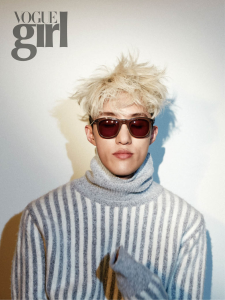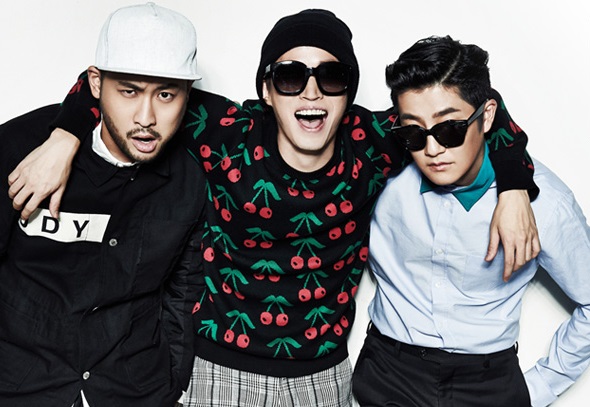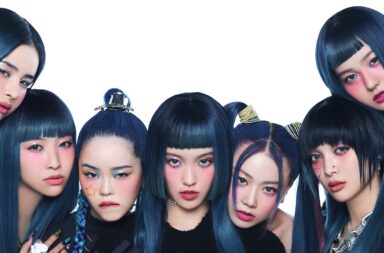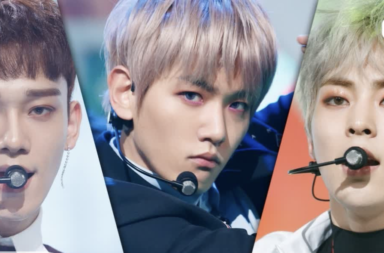 Over the last three years, K-pop has been experiencing a bit of struggle to stay afloat the way it did in the late 2000s and early 2010s, while other genres of Korean music have been able to break free over K-pop’s once dominant and overwhelming hold on the industry to make their way to mainstream status. The state of the boy band and girl group in K-pop has been threatened with some of the genre’s most popular groups losing members and/or going on longer and longer hiatuses. What this “weakening” of the K-pop brand, as we now know it, means is not necessarily bad or a complete end to K-pop. Rather, it means that the Korean music industry is facing a major transformation and that K-pop is about to get a facelift.
Over the last three years, K-pop has been experiencing a bit of struggle to stay afloat the way it did in the late 2000s and early 2010s, while other genres of Korean music have been able to break free over K-pop’s once dominant and overwhelming hold on the industry to make their way to mainstream status. The state of the boy band and girl group in K-pop has been threatened with some of the genre’s most popular groups losing members and/or going on longer and longer hiatuses. What this “weakening” of the K-pop brand, as we now know it, means is not necessarily bad or a complete end to K-pop. Rather, it means that the Korean music industry is facing a major transformation and that K-pop is about to get a facelift.
I know I assured you that it wasn’t signs of an all out Kpopalypse — and it wasn’t — but 2014 was a turbulent year for K-pop and was definitely, and more accurately, a foreshock before the real shake up. Major groups SNSD and Exo lost members Jessica, Luhan, Kris, and Tao, respectively, while MBLAQ lost members Lee Joon and Thunder. In 2015, Sulli left her group f(x), 2AM kind of disbanded.
 This year, 2NE1, which had a really promising future but never really got off the ground, after a two year hiatus, has seen the departure of one of its members: Minzy. Beast, one of K-pop’s biggest groups, has seen a dip in sales and popularity over their last few promotions, and now Hyunseung has left the group to pursue a solo career. There were even rumblings from 4minute of a possible disbandment depending on the success of their latest release. Kara, who struggled with its success in recent years, disbanded … or, as they follow 2AM’s steps and insist, just had three of its four members leave for different agencies. Pledis Entertainment has struggled to make enough money from the promotion of its groups Seventeen, NU’EST, and After School, and as result After School has gone on an indefinite hiatus with no real comeback date in sight. Now, there are speculations that Nana has or will be leaving the group. On top of K-pop groups continuing to lose members, we see groups like Shinee, Miss A, Block B, Secret, and Super Junior taking longer hiatuses and putting a greater focus on individual activities.
This year, 2NE1, which had a really promising future but never really got off the ground, after a two year hiatus, has seen the departure of one of its members: Minzy. Beast, one of K-pop’s biggest groups, has seen a dip in sales and popularity over their last few promotions, and now Hyunseung has left the group to pursue a solo career. There were even rumblings from 4minute of a possible disbandment depending on the success of their latest release. Kara, who struggled with its success in recent years, disbanded … or, as they follow 2AM’s steps and insist, just had three of its four members leave for different agencies. Pledis Entertainment has struggled to make enough money from the promotion of its groups Seventeen, NU’EST, and After School, and as result After School has gone on an indefinite hiatus with no real comeback date in sight. Now, there are speculations that Nana has or will be leaving the group. On top of K-pop groups continuing to lose members, we see groups like Shinee, Miss A, Block B, Secret, and Super Junior taking longer hiatuses and putting a greater focus on individual activities.
This might seem distressing. However, while K-pop and its trademark boy bands and girl groups have been struggling to replicate the success they had five years ago, other genres, mainly Korean hip hop, rap, and R&B, have been booming. And the Korean music industry has noticed and begun making adjustments to accommodate.
SM Entertainment has built its brand on spit-shined, squeaky-clean pop idols and has generally had a finger on the pulse when it comes to knowing what sells in Korean music. But, in the last year and half, SM has been making significant moves to expand their brand to include more hip hop and rap. In 2015, we saw them outsource features from Zion.T, Verbal Jint, and Block B’s Zico for some of their biggest acts, something their own artist Super Junior’s Heechul has admitted is against their business policy. In addition, 2015 saw the debut of Iron, SM’s own in-house, solo rapper. This year, they made a huge move to be inclusive of other non-pop genres with the launch of SM Station, for which every week for one year they release a new song, most of which have featured artists from outside of SM.
 YG Entertainment has been ahead of the pack in outsourcing features but has generally made promotion a family business. However, earlier this year, the company solicited the skill and star power of K-R&B artists for their own groups by having Zion.T and up-and-coming artist Dean provide covers of Winner‘s “Baby Baby” as a teaser for the group’s comeback. Additionally, Zion.T even left his longtime label, Amoeba Culture, to join Teddy‘s YG sub-label.
YG Entertainment has been ahead of the pack in outsourcing features but has generally made promotion a family business. However, earlier this year, the company solicited the skill and star power of K-R&B artists for their own groups by having Zion.T and up-and-coming artist Dean provide covers of Winner‘s “Baby Baby” as a teaser for the group’s comeback. Additionally, Zion.T even left his longtime label, Amoeba Culture, to join Teddy‘s YG sub-label.
Singing competitions are another sight in which we can see a gravitation towards hip hop/rap/R&B music. Shows like K-Pop Star, which had the goal of creating the next big K-pop artist, became popular in the early 2010s. However, in recent years there has been an increase in popularity of rap competition shows thanks to Mnet’s Show Me The Money and Unpretty Rapstar. Now, jTBC has recently debuted a grandmother version to these rap competition shows called Hip Hop Nation, which has also been highly successful since its premiere.
Aside from the increase in collaborations with more mainstream labels and getting more spotlight through their own competition shows, K-hip hop, rap and R&B artists have been showing off their own star power through touring. In 2015, Epik High sold out and had to add dates in multiple cities on their first North American tour. Then in this year they became the first big-name Korean group to perform at Coachella. Also, in 2015, Beenzino and Dynamic Duo had great success with their first U.S tours, as did Amoeba Culture. In addition, Korean hip hop and R&B artists, as well as indie artists, have had an increasingly large part in the annual SXSW Music Festival with the K-Pop Night Out showcase.
 In 2014, AOMG held a successful three-city tour in the U.S and returned this year, selling out a larger eight-city tour. AOMG, aside from having success with their stateside tours, has been a leading force in this shift in the Korean music industry. Jay Park, its founder, started his career as a member of 2PM and, in starting this highly successful K-hip hop/rap/R&B-based agency, has been a huge catalyst for this change in the Korean music industry.
In 2014, AOMG held a successful three-city tour in the U.S and returned this year, selling out a larger eight-city tour. AOMG, aside from having success with their stateside tours, has been a leading force in this shift in the Korean music industry. Jay Park, its founder, started his career as a member of 2PM and, in starting this highly successful K-hip hop/rap/R&B-based agency, has been a huge catalyst for this change in the Korean music industry.
This transition in the Korean music scene is not unlike the shift in popularity of pop in favour of rap/hip hop that took place in the U.S. in the 1990s. At the time, many boy bands started breaking up, and members started going solo. Being edgier became much more marketable. While boy bands and girl groups had a great run and gave us some great moments, songs, and groups, I think it’s time to bid farewell to the pop facet of Korean music and say hello to the new age of K-hip hop, rap, R&B, and more underground sounds as well as an acceptance of artists as artists and people rather than parts to whole or items for entertainment.
(Korea Times, Asia 24/7, Asian Junkie, RKD, Soompi, Billboard, Los Angeles Times, USA Today, SXSW)
_________
This piece was written by La Shauna Campbell of Asia 24/7. She was one of the participants of the K-pop Writers’ Workshop.



